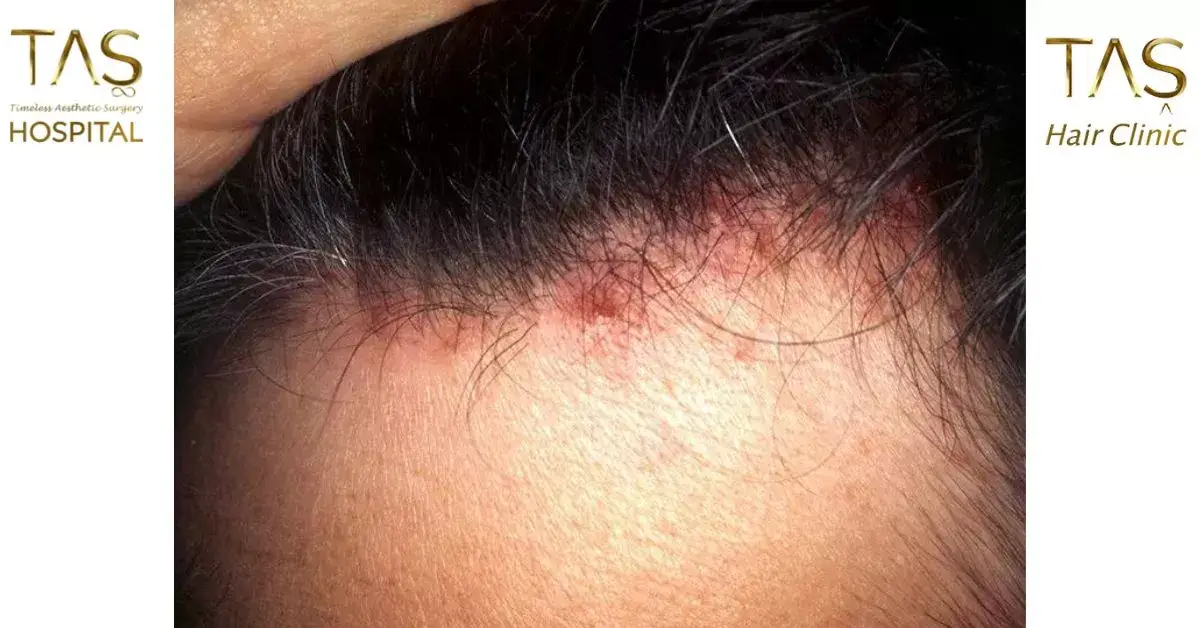Scalp pain can be caused by a variety of factors, including tension headaches, Scalp infections, sunburn, trichodynia, and chemical damage. Other possible causes include autoimmune disorders, nerve damage, and underlying medical conditions
If you experience persistent scalp pain or sensitivity, it is important to see a medical professional for proper diagnosis and treatment. Depending on the underlying cause treatment may include medication, lifestyle changes, or other interventions to manage the pain and improve scalp health
If you’re experiencing scalp pain while moving your hair, you may be interested in exploring solutions like scalp micro pigmentation. Scalp micro-pigmentation is a non-invasive cosmetic procedure that involves tattooing small dots onto the scalp to create the appearance of a fuller head of hair. Learn more about scalp micropigmentation and how it could help alleviate your scalp pain.
What are the possible ways of scalp pain?
There are several possible ways that scalp pain can manifest. Here are some examples:
Dull or aching pain: This type of pain is often described as a dull, persistent ache on the scalp. It may be accompanied by a feeling of pressure or tightness.
Sharp or stabbing pain: Sharp or stabbing pains on the scalp may occur suddenly and be intense, but brief. They may be related to nerve pain or tension headaches.
Burning or tingling sensation: Some people may experience a burning or tingling sensation on the scalp, which may be accompanied by redness or sensitivity to the touch.
Itching or irritation: Itching or irritation on the scalp may be a sign of an underlying skin condition such as psoriasis, seborrheic dermatitis, or folliculitis.
Sensitivity to touch: Some people may experience increased sensitivity to touch on the scalp, which may make it uncomfortable to brush or style their hair.
The type and severity of scalp pain can vary depending on the underlying cause. If you are experiencing persistent or severe scalp pain, it is recommended to seek medical attention to determine the underlying cause and appropriate treatment.
5 ways to treat your scalp pain
The treatment for scalp pain depends on the underlying cause of the pain. Here are some possible ways to treat scalp pain:
- Over-the-counter pain relievers: For mild to moderate scalp pain, you may be able to manage the pain with over-the-counter pain relievers such as acetaminophen, ibuprofen, or aspirin. However, it’s important to follow the instructions on the label and not exceed the recommended dosage.
- Prescription medications: In some cases, prescription medications may be necessary to manage scalp pain. For example, if the pain is related to a nerve condition, your doctor may prescribe medications such as gabapentin or pregabalin.
- Stress reduction techniques: If your scalp pain is related to tension headaches or stress, stress reduction techniques such as meditation, deep breathing, or yoga may be helpful in managing the pain.
- Scalp massage: Gentle scalp massage can help to increase circulation and promote relaxation, which may help to alleviate scalp pain.
- Addressing underlying medical conditions: If the scalp pain is related to an underlying medical condition such as scalp infections or autoimmune disorders, treatment for these conditions may be necessary to alleviate the pain.
Scalp pain after Hair Transplant
Following a hair transplant, it is common to feel some pain, discomfort, and sensitivity in the scalp. This is due to the procedure’s utilization of tiny scalp incisions to move hair follicles from one region of the scalp to another. Depending on the patient and the particular technique employed during the treatment, the degree and length of pain experienced following a hair transplant can vary.
Here is some common scalp pain after Hair Transplant:
Swelling: Swelling is a normal reaction to the trauma of a hair transplant, and it can put pressure on the scalp, leading to discomfort and pain.
Tension: The newly transplanted hair follicles need time to heal and settle into their new location. During this time, the scalp may feel tight or tense, which can be uncomfortable.
Inflammation: Inflammation is a natural response to the trauma of the hair transplant, and it can cause pain and tenderness in the scalp.
Nerve irritation: The procedure can cause temporary irritation of the nerves in the scalp, which can lead to pain or sensitivity.
It’s crucial to get in touch with your doctor immediately away if you feel chronic or severe discomfort following a hair transplant or if you exhibit infection-related symptoms like fever, redness, or discharge from the scalp. They can assess your condition and make a therapy recommendation.
Conclusion
In conclusion, a variety of conditions, including autoimmune diseases, nerve damage, tension headaches, scalp infections, sunburn, trichodynia, and chemical damage, can result in scalp pain. Depending on the underlying cause, the type and intensity of scalp discomfort can change. Prescription drugs, over-the-counter painkillers, relaxation exercises, scalp massages, and addressing underlying medical issues are all possible forms of treatment. Moreover, some pain and discomfort are normal after a hair transplant. These symptoms can be handled by taking painkillers, using ice packs, keeping the scalp clean, adhering to aftercare recommendations, and giving oneself time to recuperate. It is advised to seek medical assistance if you have persistent or severe scalp discomfort in order to identify the underlying reason and the best course of action.
Contact us for more detailed information and book a one-on-one meeting with our experienced medical consultant for a detailed hair consultation

